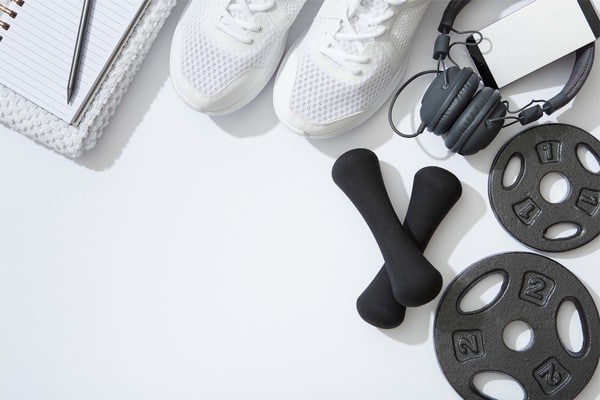
For anyone who has suffered from depression or anxiety, you know just how difficult it is to get up and move on most days. However, on those days that you’re able to pull yourself out of bed, put on your workout clothes and go for a nice run or sweat session, you’ll notice that there’s a clear shift in your mood, and you might think to yourself, today’s not so bad after all.
Exercising is not just for keeping yourself physically fit. It can keep you mentally healthy as well. Research has proven that exercises such as running, cycling, walking, swimming, dancing and even gardening (yes, digging holes and carrying bags of dirt is a workout, too) reduce symptoms of anxiety and depression.
How Can Exercise Make Us Feel Better Mentally?
Anyone who exercises regularly knows just how good you feel after completing an intense workout. But the mental benefits of exercising extend to far more than just a boost in serotonin levels, especially if you do it regularly.
Here are some of the ways regular exercise can improve your mental health:
- Exercising releases feel-good hormones in your brain, such as serotonin, endorphins and oxytocin.
- Exercising regularly can help you sleep better, which, in turn, allows you to manage your mood better as well.
- When you’re in the zone of your workout, you forget your worries, and negative thoughts dissipate.
- Accomplishing exercise goals or challenges, even tiny ones, can increase your self-esteem. Plus, getting in shape can make you feel more confident in your skin.
- Exercising offers an opportunity to socialize and meet different people – whether it be exchanging a friendly smile or hello as you take a stroll around your neighborhood or getting coffee with your new gym buddy.
- Physical activity is an excellent outlet for your frustrations. Tough day at work? Had a fight with your loved one? Argued with someone? Try exercising to relieve the negative emotions inside of you.
For individuals dealing with anxiety and depression, being more physically active is also a healthy coping strategy.
Not only does working out benefit your mental health, but it’s also better for your cardiovascular health and overall well-being. This is critical because individuals with mental health issues are more likely to develop chronic physical conditions like heart disease, diabetes, arthritis and asthma.
How Often Should I Exercise for My Mental Health?
If exercising isn’t already a part of your daily habit, you might be curious as to how much physical activity is needed to improve your mental health.
The great news is working out doesn’t have to be so challenging or take a long time. Evidence shows that low to moderate-intensity exercise is enough to ignite a positive effect on your mood and concentration.
Spending 30 minutes or more of your day exercising three to five times a week can significantly improve anxiety and depression symptoms. Going for a stroll, tending to your garden, practicing yoga, dancing or even doing housework can already give you a mild workout and boost your mental state.
High-intensity exercises like running, cycling and HIIT workouts can improve your mood in less time. It only takes as little as 10 to 15 minutes of your day, and voilà, your mood has lifted to higher vibrations!
How Do I Start Exercising and How Do I Stay Motivated?
We all know how challenging it can be to start exercising and even harder to stay motivated to do it regularly. So below are a few tips to help you get moving.
Find a Physical Activity That You Enjoy Doing
You’re more likely to follow through and stick to an exercise routine if you have fun while doing it. For example, if you don’t like running, there’s no point in trying to torture yourself to do that as an exercise.
Perhaps you would prefer to learn a new sport such as boxing or tennis. Or maybe you would like to enroll in a dance studio or spin class. Whatever it may be, make sure it sparks joy so you don’t see exercise as a chore but rather as a sweaty therapy session that will leave you feeling so much better afterward!
Start with Small Goals and Work Your Way Up
Don’t overwhelm yourself by setting unrealistic goals like working out five times a week for an hour each day. You’re trying to lessen your anxiety, not add to it.
Assess your body’s capabilities first and begin with small goals that you know you can achieve. For example, you can start with 15-minute light workouts three times a week and gradually work your way up from there.
Get Support from Someone
Whether it be your therapist, gym coach or friend, make sure you have someone who will support you and push you to get your body moving, especially on the days when you don’t feel like it. Words of encouragement can go a long way and help you stay on track.
Believe in Yourself
Sometimes, setbacks happen. You skip a day of exercise, and suddenly it becomes two, three, a whole week of no exercise! Don’t be too hard on yourself! Acknowledge all the progress you’ve made and see just how far you’ve come. Believe in your ability to get back into the groove because you absolutely can!
A Parting Reminder
If you’re looking for a sign to start exercising, this is it! In the words of Olivia Newton-John, “Let’s get physical!” and the mind will follow.
2016 study demonstrated that participants who attended even just a three-day relaxation regimen with meditation components displayed increased brain connectivity as opposed to participants who attended a relaxation program without meditation components.
In another research inquiry, data showed that those who trained memory and concentration through meditation for a couple of weeks scored 16% higher in the GRE (a standardized test for graduate and business schools).





0 Comments